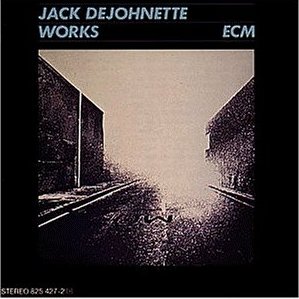
| Artist: | Jack De Johnette |
| Title: | Works (1975-1980) |
| Released: | 1985 |
| Label: | ECM Records |
| Time: | 46:02 |
| Producer(s): | Manfred Eicher |
| Appears with: | |
| Category: | Jazz |
| Rating: | ******.... (6/10) |
| Media type: | CD |
| Purchase date: | 1997.01.01 |
| Price in €: | 20,99 |
| Web address: | www.ecmrecords.com |